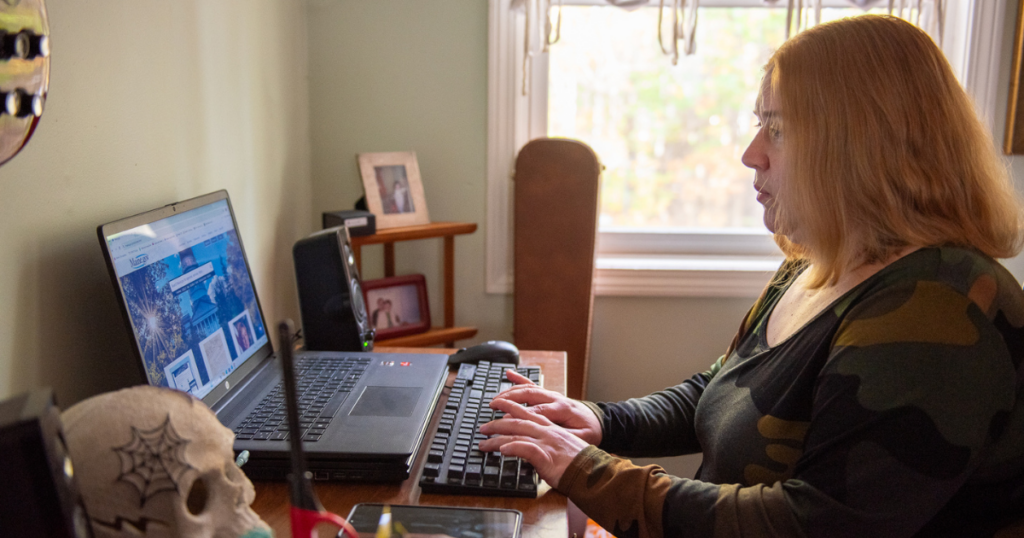Rebekah shared her story as part of MECEP’s State of Working Maine 2024 report. Click here to read the full report.
Rebekah has worked for the Maine Department of Environmental Protection (DEP) for 23 years. Her job involves collecting payments from responsible parties when oil and hazardous waste incidents happen in Maine. Rebekah primarily works on cases involving oil leaks and spills, but has also worked on recent highly publicized cases, including the train derailment in Jackman and the PFAS foam spill in Brunswick.
“I have 262 cases on my caseload right now. I usually get the more difficult and time-consuming cases, where you have to explain to a responsible party why they can’t be made whole. For the train derailment and the aviation foam spills, I was tracking department staff time and expenses in real time so we could estimate clean-up costs in any given moment. I also handle FEMA reimbursements for the December, January, and April storms. Those cases make up at least half of my caseload at the moment.
The most recent study on state worker salaries showed that my job classification — among others — is paid roughly 30% less than it is in the private sector. I wish we were closer to market pay. It would help make up for some of the cuts we’ve taken in health insurance. It used to be an acceptable tradeoff to receive a little bit less in pay, knowing that you were getting excellent benefits. The gap has gotten larger, and our health benefits have eroded.
If the state is paying 86% of market pay when you average the classifications together, there clearly is a pay gap. They talk about how the increases they gave since 2019 matched the rise in the cost of living, but we were already below market pay. Next year I’ll get the first merit increase I’ve had in about eight or nine years. I’m in a two-state-employee-household. Both of our classifications are roughly 30% below market rate. It makes it hard to save for retirement or emergencies.
Lawmakers don’t understand how underpaid state employees are. There are plenty of state workers who have to work additional jobs to supplement their income. There was a time when I had two part-time jobs in addition to my job with the state. Even now, I have a home-based business I run in my off-hours to supplement our household income.
We’ve had our share of people we offer jobs to say, “I can’t come and work for you for that.” It’s hard to keep staff when you’re not competitive. It’s not good for morale, either.”




